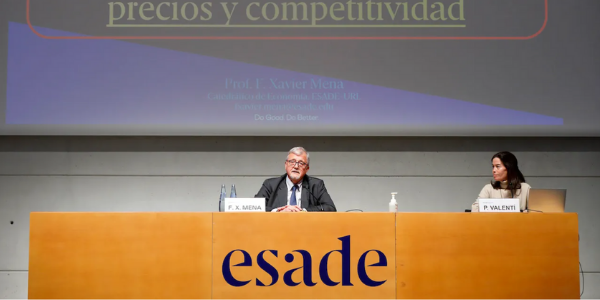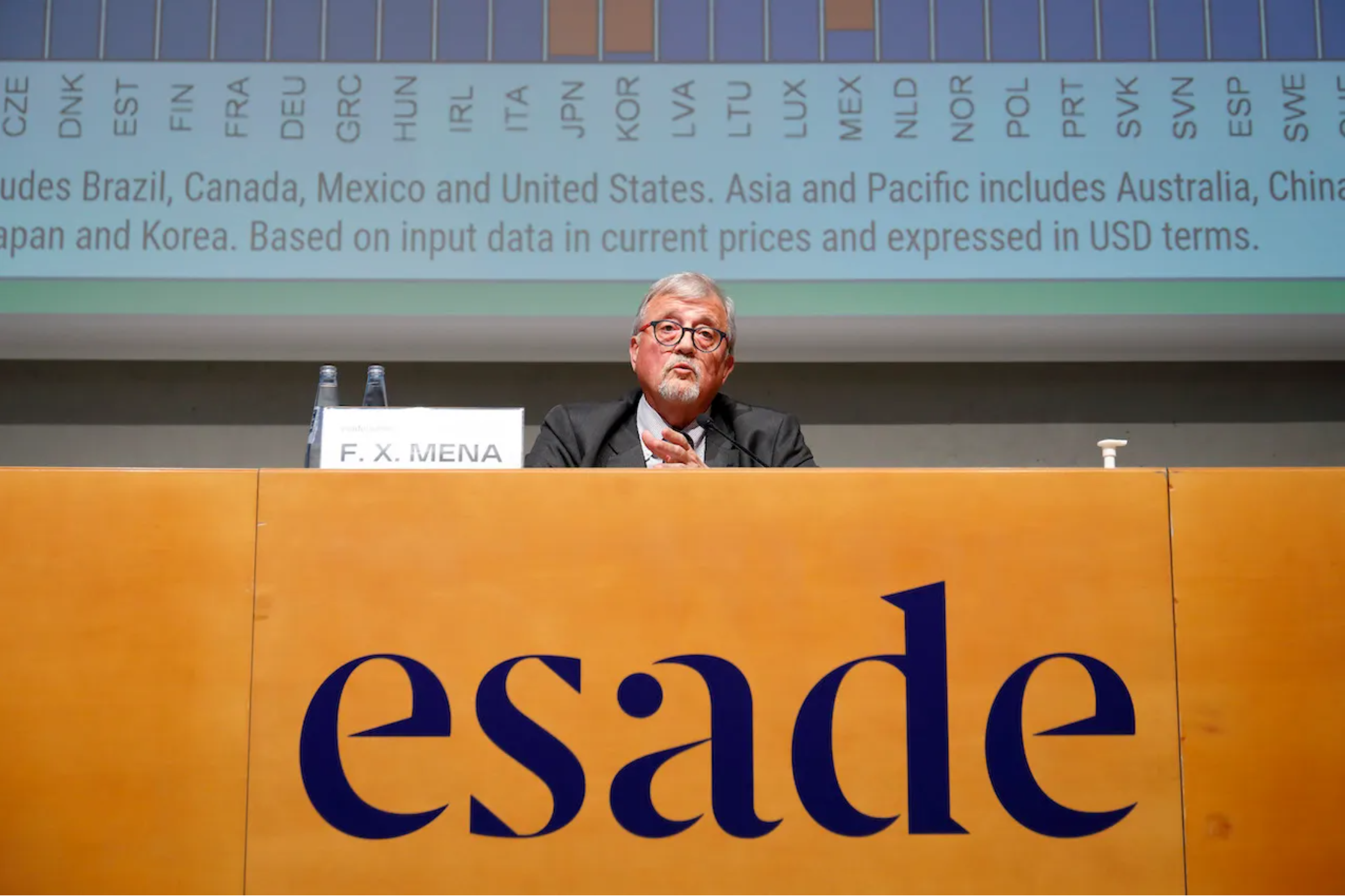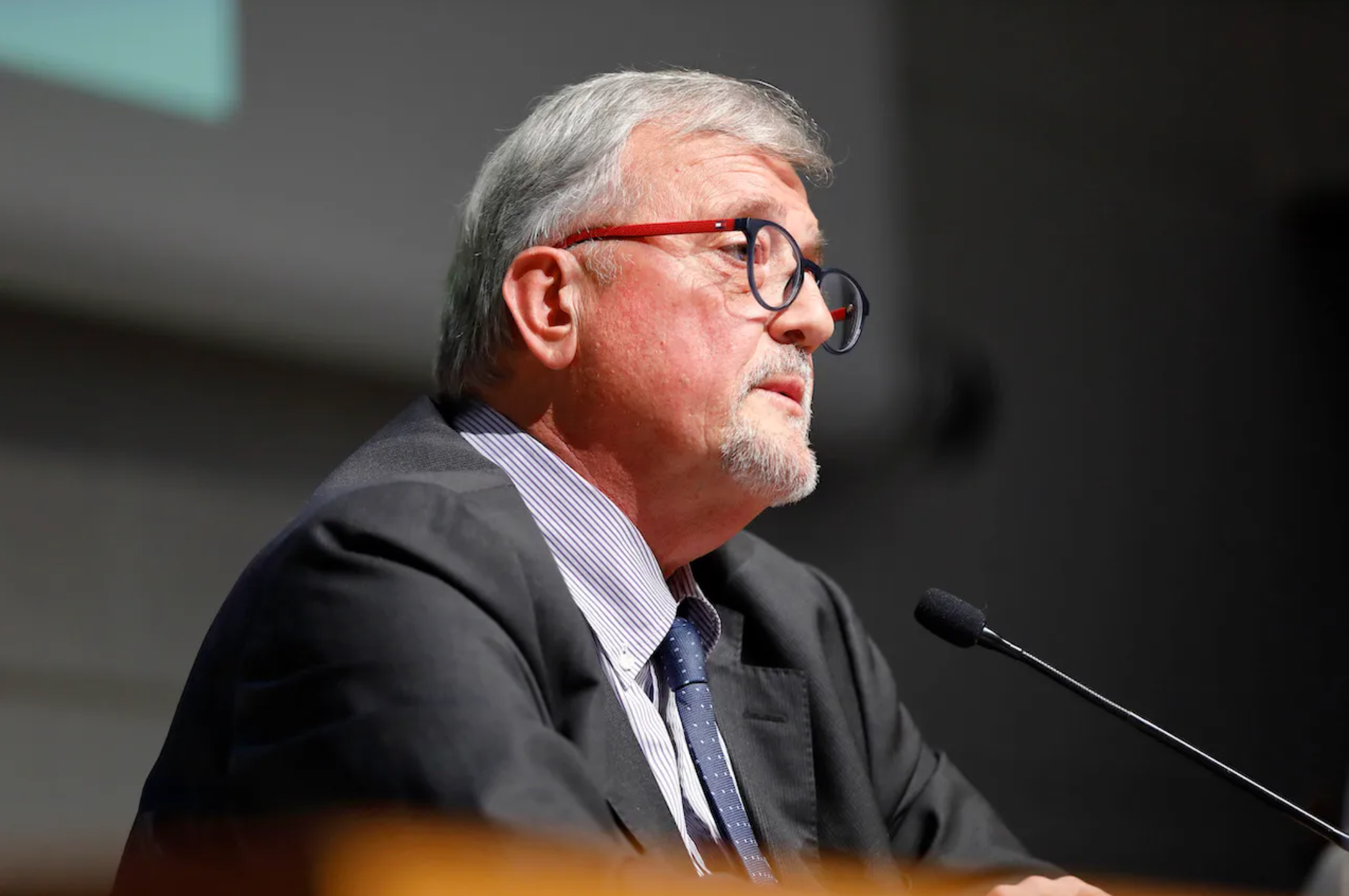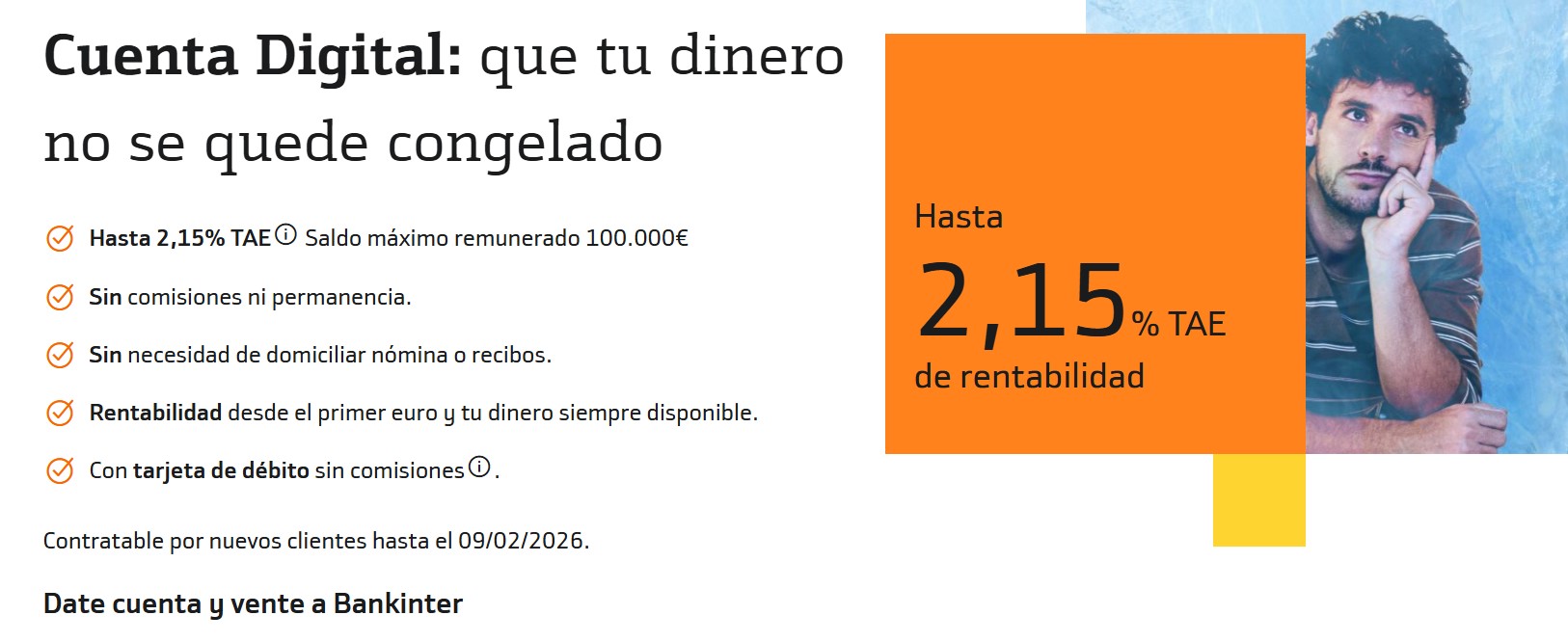On 27th January, Esade hosted a long-awaited Refresher Programme session: an economic analysis by F. Xavier Mena, Professor of Economics in the Department of Economics, Finance and Accounting at Esade.

Prof. Mena went over the main economic consequences of the COVID-19 pandemic, which simultaneously prompted a supply shock and a demand shock.
Supply shock and demand shock
This supply-chain crisis cannot be attributed to a single cause, but rather to a set of circumstances hindering the smooth delivery of goods.
Since early 2020, the pandemic has slowed down the global supply chain and affected major production centres across the world. “And new waves have created an ‘earthquake effect with aftershocks’, with even worse consequences in each successive wave,” explained Prof. Mena. The demand shock, due to lockdown, followed by the supply shock, due to the disruption of supply chains and transport, has affected the entire planet, including the richest countries, which have resumed their consumption patterns.
This supply-chain crisis cannot be attributed to a single cause, but rather to a set of circumstances hindering the smooth delivery of goods. The most prominent effects include a chip shortage, overcrowded ports, rising costs of raw materials and a lack of haulers.
These supply-chain imbalances have led to longer delivery times from suppliers and consequent bottlenecks that have severely impacted production processes in the manufacturing industry. “In a just-in-time world like ours, component shortages result in production line stoppages,” explained Prof. Mena, “In particular, bottlenecks have occurred in advanced economies, making the crisis even more fierce.” He predicted that the crisis would last through the second half of this year, although readjustments are already being seen.

Rising prices
The increase in business costs has rippled throughout the value chain, spreading outward from the misalignment of maritime transport and the rising cost of raw materials and energy.
The rapid rebound of global demand has led to higher prices for raw materials, as well as supply problems affecting companies that rely on imports of these materials in their production processes. Moreover, the increase in transport costs is compounded by the rise in oil prices – due to the increase in demand – and consequently the rise in prices for gas and practically all raw materials.
But the problem does not end there. The chip shortage, which limits production processes, is another contributing cause of the supply-chain crisis.
The chip shortage is a serious obstacle because building a manufacturing plant takes years and is a risky process. In the chip industry, Taiwan is everything – and that is a vulnerability. TSMC, the Taiwanese firm that leads the market in chip manufacturing, is unable to meet the current demand. This has direct consequences for sectors such as the automotive industry, which is feeling the impact of microchip shortages, especially in the United States and Germany, both of which are major car producers, but also in Mexico and Spain.

Economic situation
Economic situation
All signs suggest that the world is now emerging from the crisis, that economies are doing better and that the accumulated savings will trickle down with positive effects.
“However, in terms of economic policies, each country has gone its own way,” noted Prof. Mena. The United States is embarking on its recovery process with a very high rate of inflation (an interest rate hike has already been announced) and an unprecedented job resignation rate. As for monetary policy, the country is betting on the early withdrawal of stimulus measures and the start of interest rate normalisation (the Federal Reserve announced that it will raise interest rates up to three times in 2022).
Europe is also doing better, albeit with public debt controlled by the European Central Bank, very low interest rates that are expected to be maintained and soaring inflation. In addition, the continent faces tension with Russia and its impact on energy, trade tensions with China, and all of the fallout from its divorce from the United Kingdom. However, its future projects, including the European banking union, are still on track.
We have vaccines, but we have to get the economic issues right by doing things well and better. As we say at Esade, ‘Do Good, Do Better’.
Spain, meanwhile, is lagging behind and has serious productivity and labour-market problems. “In our country, the cost of energy is a problem,” commented Prof. Mena. “There was a labour reform, which in my view was a mistake, and basic issues around the pension system are not being addressed.”
So 2022 remains a labyrinth. The current inflation spike, rising energy costs and the problem of bottlenecks in world trade are the main uncertainties surrounding economic recovery. “We have vaccines, but we have to get the economic issues right by doing things well and better,” concluded F. Xavier Mena. “As we say at Esade, ‘Do Good, Do Better’.”

































